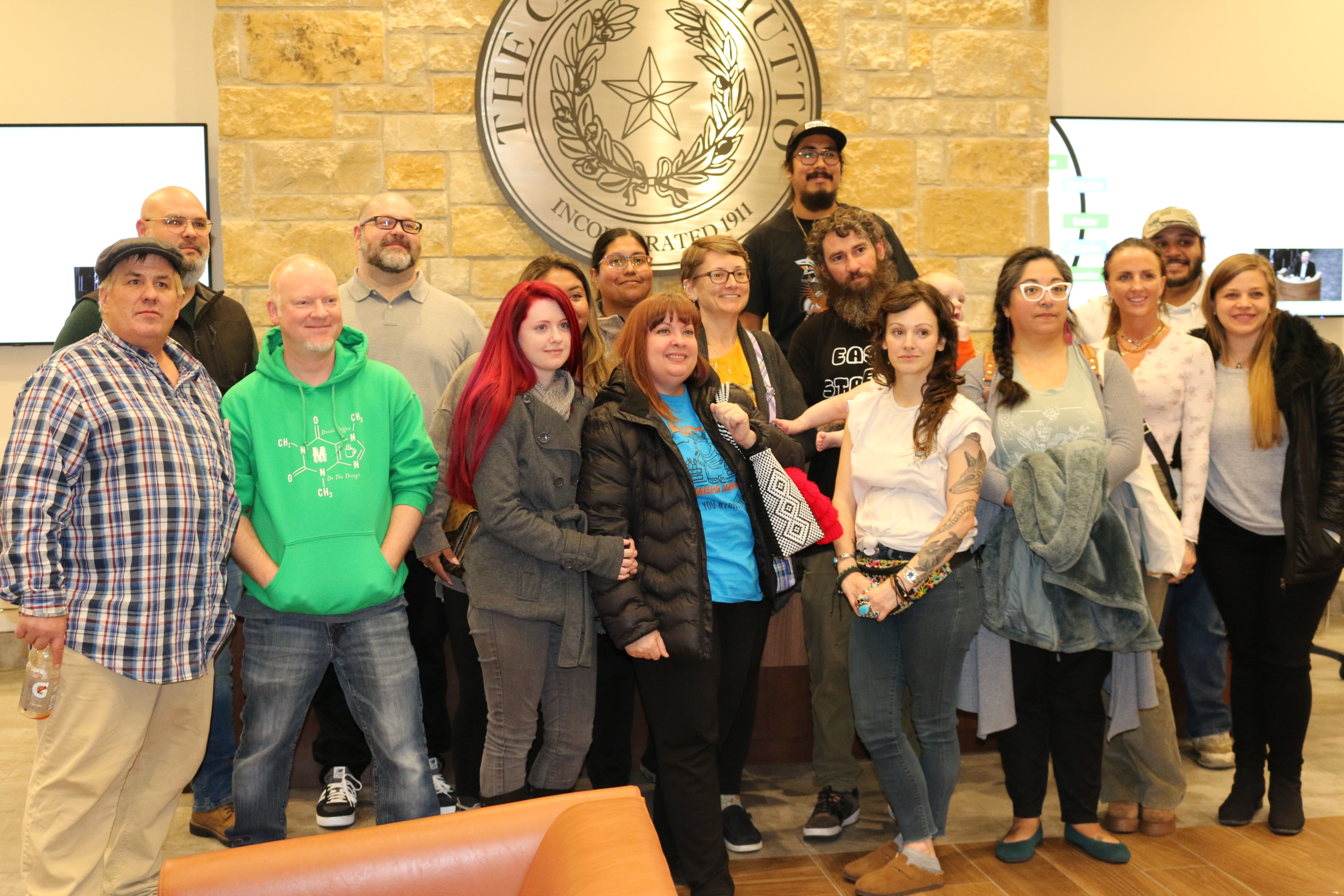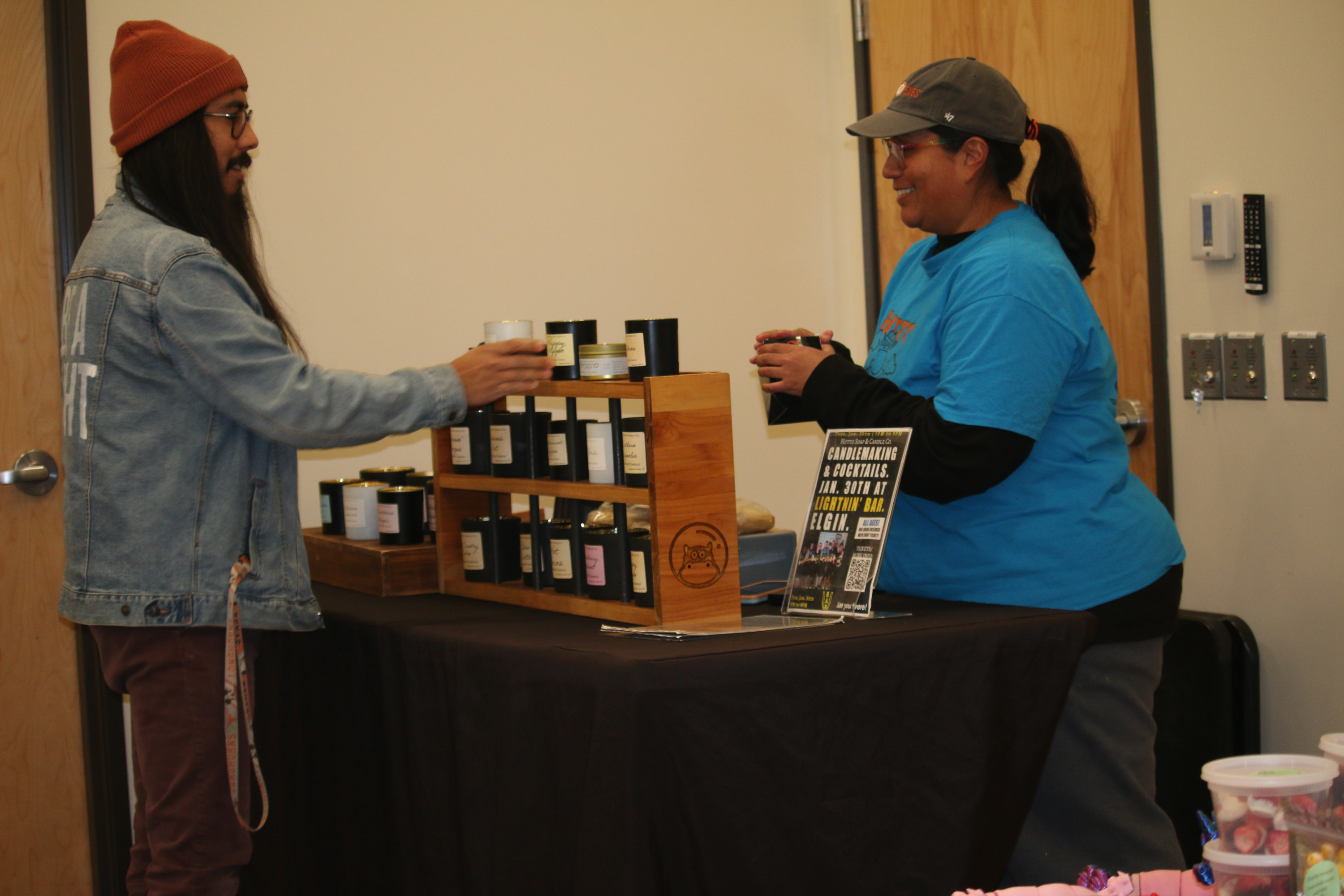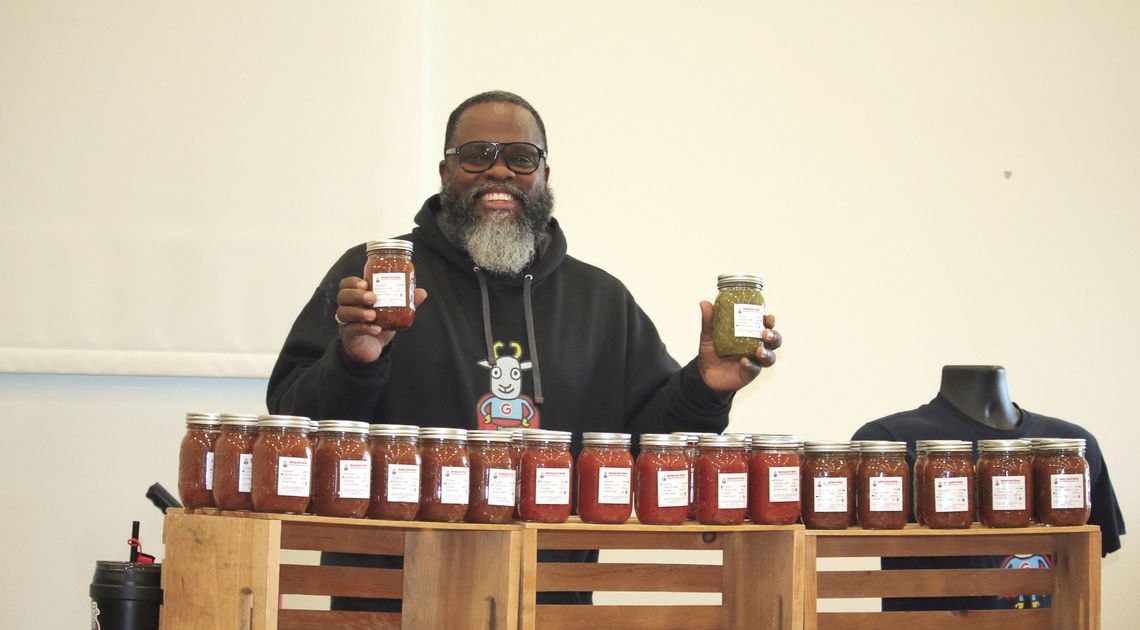Central Texas, teeming with agricultural roots and independent spirits, is home to a number of farmers markets. Eastern Williamson County currently has three: a year-round Saturday market in Taylor and year-round Wednesday and Sunday markets in Hutto. There are also frequent pop-up markets, food-truck events and craft markets in the area.
Some of the larger city markets and fairs are geared to vendors who are already at the top of their game, with pages of regulations, contracts, limited acceptance of new vendors and high booth fees.
In return, these markets attract customers by the thousands.
Smaller markets like those in Hutto and Taylor are known as “incubator markets.”
They might have fewer crowds, with a less-fevered pitch, but give customers more time to learn about the products on sale and vendors more time to hone their business skills.
Several vendors recently opened up about their journey from farming to funding, using these homegrown venues to offer fresh or original produce and craft products while supplementing an income or earning one outright.
.JPG)
THE PERSONAL TOUCH
Alaska native Tenny Warwick expected to spend his whole life fishing the tempestuous Bering Sea. The crab fisherman — a profession known as one of the most dangerous jobs in the world — eventually fell victim to his industry’s perilous nature.
A devastating shipboard accident crushed his body and his dreams.
“I couldn’t fish anymore, so my fishing partner and I decided we’d like to buy the fish and sell it to health-food stores, things like that, around the country,” Warwick said. His company, Tenny’s Wild Alaskan Seafood, buys salmon and other fish directly from fishing vessels and flash freezes it aboard Warwick’s boat while still at sea.
“At some point I had to pick someplace that I really wanted to be. I have family in Washington, but there’s just so much saturation and competition for seafood there, so I decided I would supply Texas with good wholesome seafood from Alaska and the farmers markets seemed like the way to do it,” he added.
Warwick flies his frozen product directly from Alaska to Austin. He sells his seafood to area restaurants as well as to the public at farmers markets including Hutto Farmers Market.
There, Warwick has found a community of kindred spirits.
“The connections I’m meeting are far more profitable to me than the money I’m making at the market. It’s a good, healthy lifestyle,” the entrepreneur said. “A neat way of life. I moved here not knowing anybody and have a healthy social network now.”
Nick Pierce was living a traditional life in Hutto with a wife and four kids. He worked as a forensic toxicologist in Austin. But two years ago, his normal life took a devastating turn.
“I had to resign from my position because my wife’s health has declined significantly over the last couple of years. I needed to be more available for her,” he said. “I had to be able to take her to doctor appointments. And I have to be able to drop everything I’m doing in order to go to the hospital, which is where she spent most of last year.”
He started a coffee roasting company, Mossy Rock Coffee, just over a year ago.
“I had to take control of my own destiny. I had to own a business. And the only place that I could start my business out was at a farmers market,” said the businessman, who now sells at four markets each week. “This is my livelihood. This is the only way that I’m going to be able to go forward in my future and take care of my family.”
Farmers markets also provided a path to income for John Pantalone, who owns Amber Oaks Ranch in Thrall with wife Molly.
“We started with the markets in Elgin and Pflugerville to cut our teeth, to test out the concept and grow our production. We didn’t want to go into a major market and run out of product,” he said.
The couple sells pasture-raised meat at five markets, including Heritage Square Farmers Market in Taylor. The pair enjoy the sense of community found at these open-air sites.
“There’s a close sense of connection with the vendors and also with the customers. With the vendors it’s not really a competitive environment, more of a fellowship,” Pantalone said. “That’s like our social gathering every week. But engaging with my customers is really what makes all the blood, sweat and tears worthwhile.”
Pantalone, who has a full-time job in addition to ranching, said he and his wife found they enjoyed the small markets and decided to not pursue opening a storefront shop.

farmers markets during a Hutto City Council meeting.
“It’s capital intensive and there are a lot of regulatory hurdles to overcome. I’ve got a secure income I’d have to walk away from to take that risk, but I keep getting grounded on the reality that I’m not getting any younger. This is part of our retirement plan,” he said.
Indeed, farmers markets seem to abound with grandmas and grandpas conducting business well into what should be their retirement years.
William Parks began selling his wife LaRicher’s homemade salsa on the sidewalks of downtown Elgin five years ago. At the time, he was working two full-time jobs and his spouse worked as well. Sidewalk sales grew into booths at farmers markets and a year ago he retired from 35 years of employment at the University of Texas and 20 years of working at Home Depot to fully concentrate on the salsa business.
He, his wife and grown children sell their Nanny Goat Salsa products at seven markets, including the Hutto and Taylor venues. For him, owning his own business means freedom.
“I would say I’m retired because I’m doing what I want to do. You can’t fathom that when you’re working for someone else. I wouldn’t be able to live the way I do just on retirement pay. This lets me live the way we want to live,” Parks said.
The retiree-in-name-only says he works seven days a week.
“What you put in your business is what you get out of it and I am a hard worker,” Parks said.
Many people don’t associate hard work with farmers market vendors, many of whom sell items other than fresh produce. While everyone accepts farming has its challenges, selling homemade soap is not generally seen in the same light.
They would be wrong. Just ask Joseph Cortez and Daniela Medellin, owners of Hutto Soap and Candle Co.

Hutto Soap and Candle shop.
“With our business we have to order materials, waxes, wax melters, pots, pouring pitchers; we have to develop recipes and test product quality; we have to research and conform to regulations regarding ingredients, packaging, labeling,” Cortez said. “We have to make the product and get it ready to sell. Advertise. We have to register for licenses including sales-tax permits, make sure we’re in compliance with bookkeeping and everything else,” He added, “The only thing different we haven’t done that a brick-and-mortar business has is sign a lease.”
Cortez began researching soap ingredients because Medellin was having a reaction to their usual hand soap. That led them to information on wholesome living without toxins, and they began selling homemade, plant-based soaps, candles and balms at the farmers market.
The couple ended up unemployed in the aftermath of the pandemic, so they took on the challenge of full-time business ownership.
One of the places where they sold products, Hutto Farmers Market, became available and Cortez and Medellin stepped in and took ownership of the market as well.
BUSINESS PLAN
There are a wide variety of business models for farmers markets. The Hutto Farmers Market (Wednesdays) and the Hutto Silos Farmers Market (Sundays) are each privately owned and held on leased land.
In Taylor, the downtown Heritage Square Farmers Market is owned by the city but run by a vendors’ committee.
The municipality provides a pavilion, parking and restrooms for the market. Space fees charged to the vendors are kept affordable and the city uses the money to advertise the market, officials said.
Organizers said the Taylor farmers market is fully supported by downtown businesses and collaborates with local merchants in their events.
.JPG)
Juan and Lucia Garcia. They couple have joined a community of vendors making a
living at farmers markets.
Meanwhile in Hutto, there has been talk of discord between market vendors and some storefront businesses.
Cortez said recently police were called by a neighboring business because the market’s music could be heard from a restaurant’s outdoor patio area.
Statements were made in a Hutto City Council workshop questioning whether vendors kept accurate sales records and whether the city was being shortchanged on sales taxes from the farmers’ market vendors.
A trip to the Wednesday market in Hutto found that all vendors had their valid and required sales tax certificates.
“I have the food handler card, I have everything that is required of me. It’s very important for me, as we are immigrants. We came here to do the right thing,” said Maria Chavez, owner of Mananda Bakery.
Chavez immigrated to Texas six years ago from Venezuela with her husband, Antonio Garcia. The couple have two young children. Chavez said the pair were attorneys in their home country, but had to reinvent themselves in the United States.
“We came here to try to find a better future for my family and escape the dictatorship in my country,” Chavez said.
After trying retail and restaurant jobs, Chavez took a class and learned to make stuffed cookies. She said the opportunity of having a business at the farmers market allows her to supplement her husband’s income and secure her family’s future.
She and her husband share a fervent commitment to being good Americans.
“We were living in a country where everything was made upside-down, in the wrong way, with corruption and anarchy,” said Garcia. “So we came here to do things the way it has to be under the law so our kids can grow (up) in a country where everything is done the right way. That’s the point. To do the right thing and live the right way.”




Comment
Comments